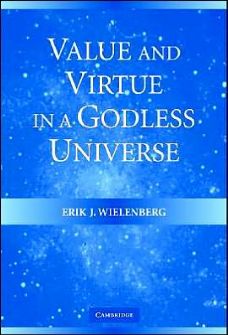In this chapter Wielenberg asks the question why be moral in a naturalistic universe? He also deals with Kant’s argument on the divine guarantee of a morally perfect universe. I will only focus on the fist issue; why be moral? In this chapter Wielenberg offers two answers.
The Moral Challenge
The challenge or argument that Wielenberg is interested in responding to is as follows:
1. A person has a normative reason to be moral only if it is that person’s best interest to be moral
2. It is never in anyone’s best interest to be moral.
3. Therefore, no one ever has a normative reason to be moral.
Because Morality and Self-Interest Coincide
One way to respond to this challenge is to deny the 2nd premise. Aristotle and Hume both do this in their own unique way. There are two ways to think about self-interest which Wielenberg gives us; a revisionist axiology and a commonsense axiology. The commonsense axiology incorporates the “commonsense” values of human pleasure and virtue. Hume accepts a commonsense axiology of sorts; he believes that “being virtuous is the best way to attain wealth, power, and pleasure.” This claim is dubious, first of all it seems that those who have the most power and wealth are not the most virtuous people. Second it is difficult to specify the type of pleasure that comes from virtuous activity. Aristotle supplies something to answer the second question. On Aristotle’s view “virtuous activity is its own reward.” He explains:
“[Many] actions of a [virtuous person] are performed in the interest of his friends and of his country, and if there be need, he will give his life for them. He will freely give his money, honors and, in short, all good things that men compete for, while he gains nobility of himself…A good man would freely give away his money if it means that his friend would get more, for (in this way) the friend’s gain is wealth, while his own is nobility, so that he assigns the greater good to himself.”
So in this paradigm one ought to be moral because doing so allows you to attain a higher good. Even a life a martyrdom, in which there is no afterlife, is a life worth living because the act of martyrdom is one of the highest goods available in the natural world.
Because You Ought To
Another way of dealing with the argument presented in the beginning is to deny the 1st premise. As Wielenberg explains; "That premise is based on the notion that the only reason there could be for performing a given action is that the action is in on's interest. But it seems to me that such claim is straightforwardly false. There are many possi ble different kinds of reason for performing a given action; that it is in one's interest is but one. another reason for performing an action is simply that it is morally obligatory for one to do so." This view may seem to short or trite, but as Wielenberg mentions it is not that different from other reasons for action; "To the question "why be moral?" a perfectly acceptable answer is "because it is moral." This might seem odd until one notices that to the question "why do what is in one's interest" a perfectly acceptable answer is "because it is in one's interest." No further explanation is required in either case."

No comments:
Post a Comment